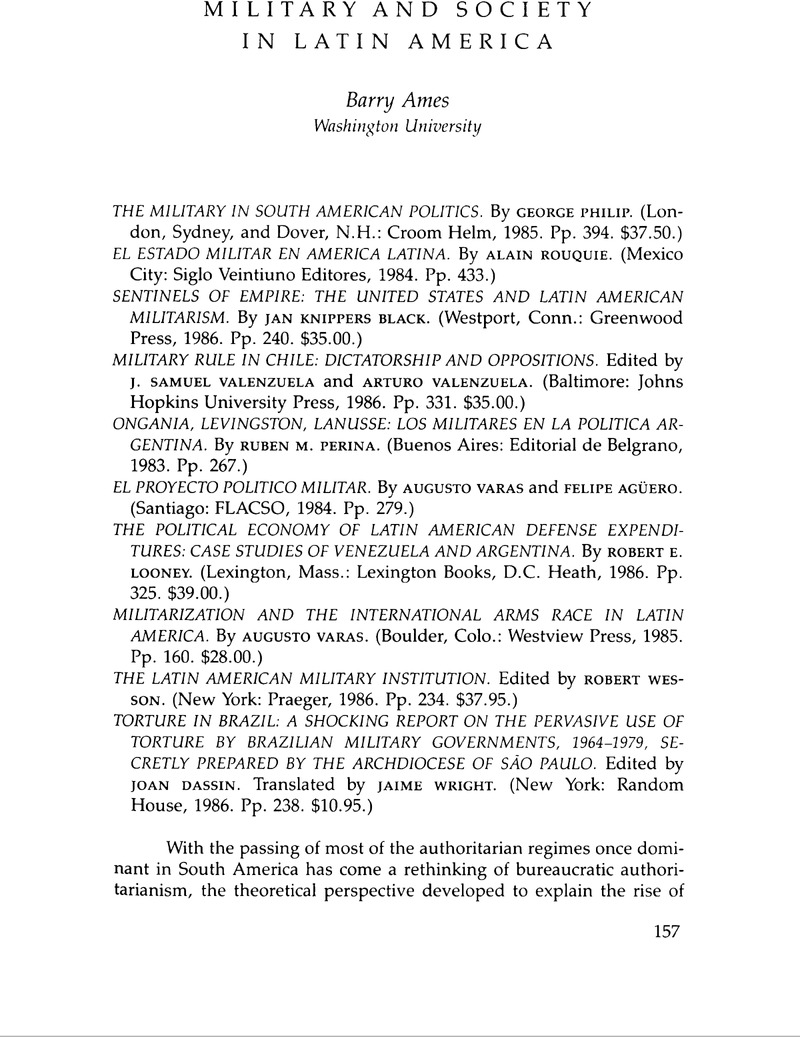Published online by Cambridge University Press: 12 October 2022

1. For a comparably curious expression of Brazilian military thinking, see Golbery do Couto e Silva, Planejamento Estratégico (Brasília: Editora Universidade de Brasília, 1981).
2. Defense apologists often argue that increases in defense spending produce increases in GNP, but their models assume that money not spent on the military will not be spent at all, that the government will not spend it somewhere else. But if one believes that legislators and executives pursue some target unemployment or growth rates and that fiscal policy is an instrument for achieving those rates, then money not spent on the military will be spent on domestic programs that produce jobs and goods.
3. It must be pointed out that I am a contributor to this debate. See my Political Survival: Politicians and Public Policy in Latin America (Berkeley and Los Angeles: University of California Press, 1987).
4. In fact, Varas points out that the neoliberals do not support the national security ideology of the armed forces.
5. There are exceptions. Some of the discussion on Argentina consists of descriptions of official procedure and unhelpful remarks such as “The curricula are designed to promote character, honor, and pride appropriate for an officer and gentleman” (Anthony Gray, retired U.S. Naval Commander, in The Latin American Military Institution, 45).